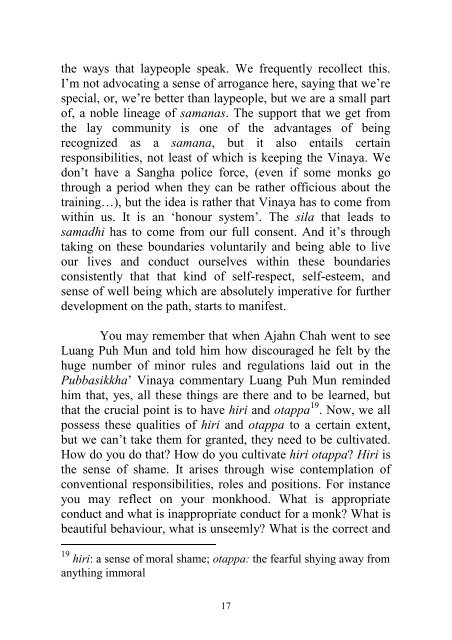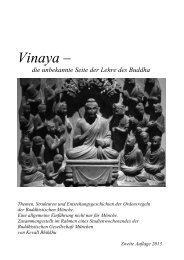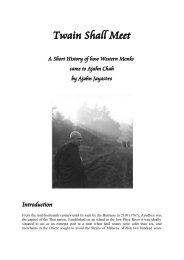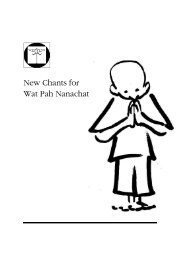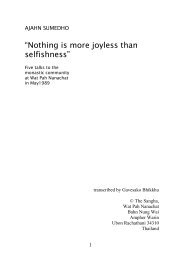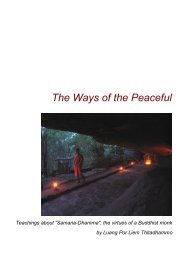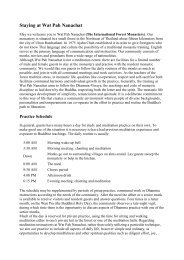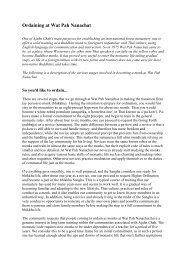Khanti - Wat Pah Nanachat
Khanti - Wat Pah Nanachat
Khanti - Wat Pah Nanachat
You also want an ePaper? Increase the reach of your titles
YUMPU automatically turns print PDFs into web optimized ePapers that Google loves.
the ways that laypeople speak. We frequently recollect this.<br />
I’m not advocating a sense of arrogance here, saying that we’re<br />
special, or, we’re better than laypeople, but we are a small part<br />
of, a noble lineage of samanas. The support that we get from<br />
the lay community is one of the advantages of being<br />
recognized as a samana, but it also entails certain<br />
responsibilities, not least of which is keeping the Vinaya. We<br />
don’t have a Sangha police force, (even if some monks go<br />
through a period when they can be rather officious about the<br />
training…), but the idea is rather that Vinaya has to come from<br />
within us. It is an ‘honour system’. The sila that leads to<br />
samadhi has to come from our full consent. And it’s through<br />
taking on these boundaries voluntarily and being able to live<br />
our lives and conduct ourselves within these boundaries<br />
consistently that that kind of self-respect, self-esteem, and<br />
sense of well being which are absolutely imperative for further<br />
development on the path, starts to manifest.<br />
You may remember that when Ajahn Chah went to see<br />
Luang Puh Mun and told him how discouraged he felt by the<br />
huge number of minor rules and regulations laid out in the<br />
Pubbasikkha’ Vinaya commentary Luang Puh Mun reminded<br />
him that, yes, all these things are there and to be learned, but<br />
that the crucial point is to have hiri and otappa 19 . Now, we all<br />
possess these qualities of hiri and otappa to a certain extent,<br />
but we can’t take them for granted, they need to be cultivated.<br />
How do you do that? How do you cultivate hiri otappa? Hiri is<br />
the sense of shame. It arises through wise contemplation of<br />
conventional responsibilities, roles and positions. For instance<br />
you may reflect on your monkhood. What is appropriate<br />
conduct and what is inappropriate conduct for a monk? What is<br />
beautiful behaviour, what is unseemly? What is the correct and<br />
19 hiri: a sense of moral shame; otappa: the fearful shying away from<br />
anything immoral<br />
17


